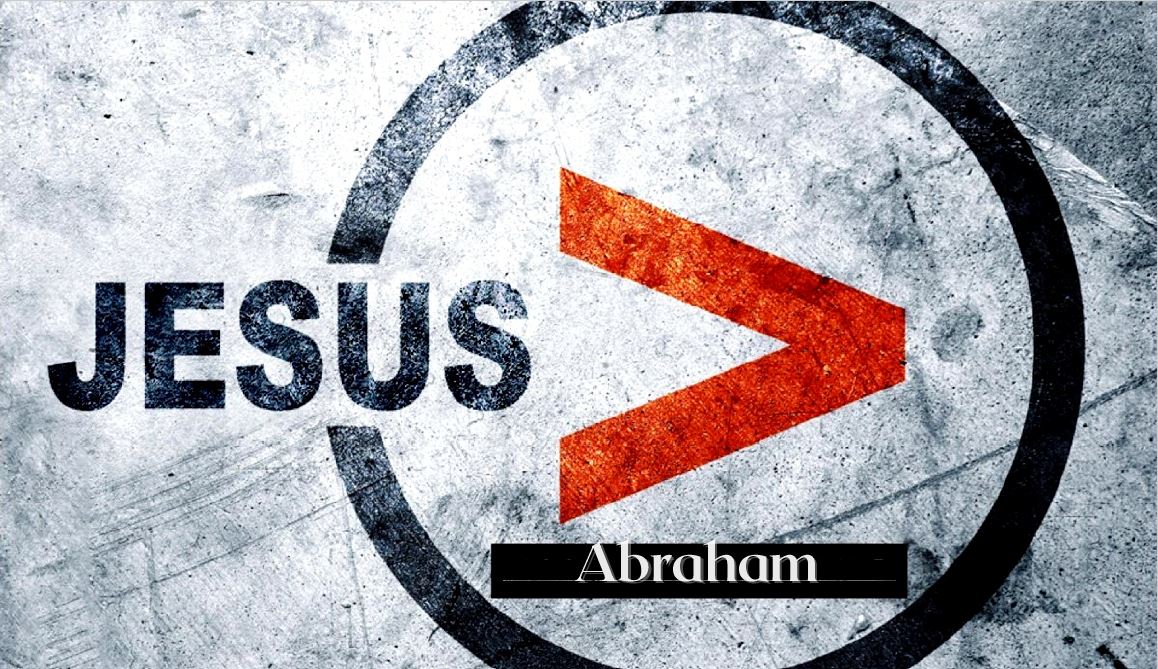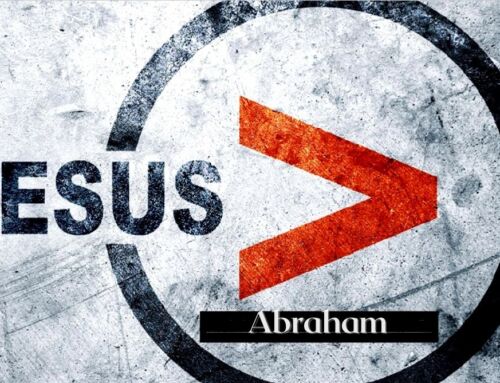Jesus, greater than John
Summary:
Jesus says that John the Baptist is the greatest of all prophets (Matthew 11:11). But John knew that Jesus was even greater and pointed away from himself: “He must increase; I must decrease” (John 3:30). John humbly said he was only a voice preparing the way for Jesus-unworthy even to untie Jesus sandals (John 1:27). He called himself the friend of the Bridegroom; Jesus is the Bridegroom (John 3:29). John baptized with water; Jesus baptizes with the Holy Spirit and fire. John led and had disciples, yet even the best leaders fail – but Jesus never fails. Leaders die – but Jesus lives forever. Our calling is John’s calling: prepare the way for the King—and then get out of the way.
Introduction
One day, as I was sitting on the couch with my son, we were talking about many things, including dinosaurs and Pokémon. Then, when he grew tired of those things, he turned the conversation toward the Bible. I remember the question he posed: “Dad, who’s your favorite character in the Bible?” Of course, I gave the right answer and said, “Jesus.”
But as we were talking, he was fascinated by the strong characters, their personalities, their accomplishments, and their ministry throughout the pages of Scripture. One of his favorites was Elijah, because Elijah had a strong and significant role in God’s work.
That really is the question: who is the most prominent person in the storyline of the Bible? As we’ve been comparing the people that Jesus himself compares to, to show that he is greater than them, this morning I’ve chosen for us to finish by thinking about John the Baptist—and for a very specific reason.
Now, there are many people we could have chosen. For instance, in John 4, we could have considered how Jesus is greater than Jacob. But I think it is fitting to finish with John the Baptist, who was indeed the greatest prophet who ever lived. Throughout the storyline of the Bible, he is the final prophet before Jesus.
This passage speaks to me on a very personal level. It speaks to the people that God calls into ministry in a very specific way. And I want you to know that throughout this message, I will be highlighting how this speaks to those currently in or feeling a call to ministry. My greatest desire when I preach is that those who God is calling will hear the call and follow.
As always, it is helpful to go back to the beginning of a book to understand the greater point. When we go back to John, we see he is dealing with the Word—the Incarnate Word, Jesus Christ. He is the eternal Word who became flesh and dwelt among men. He is the one who reveals the Father to us.
John the Baptist’s Identity and Mission
But John also begins by speaking about John the Baptist. We read John 1:19–27:
Now this is the testimony of John, when the Jews sent priests and Levites from Jerusalem to ask him, “Who are you?” He confessed, and did not deny, but confessed, “I am not the Christ.” And they asked him, “What then? Are you Elijah?” – He said, “I am not.” – “Are you the Prophet?” – And he answered, “No.” Then they said to him, “Who are you, that we may give an answer to those who sent us? What do you say about yourself?” He said: “I am
‘The voice of one crying in the wilderness: “Make straight the way of the Lord,” ’ as the prophet Isaiah said.”
Now those who were sent were from the Pharisees. And they asked him, saying, “Why then do you baptize if you are not the Christ, nor Elijah, nor the Prophet?” John answered them, saying, “I baptize with water, but there stands One among you whom you do not know. It is He who, coming after me, is preferred before me, whose sandal strap I am not worthy to loose.” (John 1:19–27)
Jesus says that John was sent from God, that he was a witness to bear witness of Christ, that people would believe through his message. John is not the light, he is not the Christ, but he was sent to bear witness of the Christ.
John’s testimony of himself is that he was simply
a voice crying in the wilderness
preparing people’s hearts for the Messiah. And in verse 27, he says:
He who comes after me is preferred before me, and I am not even worthy to untie his sandals.
In other words, I am not even worthy to be his slave. Then John publicly identifies Jesus as
the Lamb of God who takes away the sins of the world.
It is clear from the beginning that John understood who he was, who he was not, and what God’s purpose for his life was.
Conflict with Disciples
Now, in John 3, we see the setting of this passage. John tells us it takes place after these things—after the miracle at Cana and the conversation with Nicodemus—and before John had been thrown into prison. We see him nearing the end of his ministry. The Gospel writer highlights a dispute between John’s disciples and some of the Jews, centered around purification. Likely, it had to do with John baptizing people. They may have been questioning the reasoning, the legitimacy, the place, the method, and even the person doing it. In other words, they might have asked, “Why is this not happening in Jerusalem, in the temple, and why is it being performed by this man and not the priests?”
From that dispute, John’s disciples come to him, but their real issue is not with the Jews—it is with Jesus. They seem to be complaining about Jesus’ ministry and popularity. Jesus had come into the region, remained there, and was baptizing just as John was. Many people were coming to Jesus, and Jesus was drawing people away from John.
Disciples jealous over Jesus’ rising influence
So the disciples said, “Rabbi, all the people are no longer coming to you, but now they are going to him.” In other words, “We are losing our influence, our prominence, our following. We are losing everything to this man Jesus. He is baptizing, and he is getting a greater following than you.”
Clearly, there is some concern, but also some confusion. They are asking, “Why is this happening? Why is he the one people are going to? After all, didn’t you baptize him? Doesn’t that make him somehow inferior to you? Shouldn’t he technically be your disciple, supporting your ministry rather than taking people away?”
And in their words, there is not only confusion and complaint, but also a spirit of competition.
Here they were coming to grips with the fact that they and their rabbi were losing the influence among the people, and it was all going to Jesus. And so it is very likely that they saw this as somewhat of a competition.
Dangers of competition and celebrity culture
I do want to say that, sadly, that competitive spirit is all too alive today in the life of the church, where ministries and ministers jockey for influence, strive for prominence and popularity, and want to be sure that their ministry or their church is the most prominent, the biggest, the most influential, and everything else.
An interesting phenomenon of evangelicalism—at least specifically in what we could call North American evangelicalism—is how quickly we put people on a pedestal and turn pastors into rock stars. And even more so, what’s alarming is how many pastors seem to like that and desire that and pursue that.
If you think about life in America in general, it’s a celebrity culture. The people build you up very quickly, and then they tear you down just as quickly. And it’s a sad commentary on the state of the church in America that we do the exact same thing with ministers and pastors. They get a book deal, they get popular, they become famous, and then three years later everybody forgets who they are.
In all of this, I grieve at the fact that you see people who really feel called to ministry looking to that as an example of what it means to be a servant of Jesus Christ. And so they think, to have any sort of significant service to God, my Instagram has to be popping, my followers have to be in the thousands and tens of thousands, I’ve got to have a blue check mark next to my name on Twitter. They think success in ministry is success in the eyes of the broader public.
But in all of this, we lose to appreciate that fashioned, slow, grinding work of faithful gospel ministry in the local church. We live in the age of the celebrity pastor, if you can believe that’s actually a thing.
John’s Humility
Now, as John responds to the remarks of his disciples, I want us to pay attention to his humility, to his honesty, and certainly to the point that he makes. First, John clarifies his message to them.
He says in John 3:27–28:
A man can receive nothing unless it has been given to him from heaven. You yourselves bear me witness that I said, I am not the Christ, but I have been sent before Him.
So John emphasizes, on the one hand, the sovereignty of God in his ministry: a man could receive nothing unless God gives it. And he emphasizes his stewardship of it—that God gives it as a gift for him to steward. A man can have nothing, nothing, unless it has been given to him from heaven.
Immediately, you think of how Jesus spoke to Pilate when Pilate said, “I’ve got the authority here to let you go or to make sure that you die.” And Jesus says, “You could have no authority unless my Father in heaven gives it to you.”
You could think of Peter when he says in response to Jesus’s question, “You are the Christ, You are the Son of the living God.” And Jesus says, “You’re blessed, because flesh and blood didn’t reveal that to you, but my Father has shown you that.”
Or you could think of David when he says, “In the end, can I actually give to God that I haven’t first received from Him?”
The point is that all that any human has on any level is ultimately a gift from God. That’s why sometimes you sing before you eat, because everything that you have comes from God — including your food.
John shows us this in his ministry: everything he had — his ministry, his following, his influence — was not his, but a gift from God. He was simply a steward for as long as God allotted it to him. This is very important when you think in terms of pastors and ministries. A fatal flaw comes when the pastor assumes that the people belong to him. But it is not true. It is Christ who purchased you with his blood, and it is him to whom you belong.
Any people that sit under your teaching, your leadership, your authority, they are simply the people God has entrusted to you for a time. It is dangerous when you think they belong to you. Whether it’s a Bible study, a home group, or the church, that is a trap. The people are never yours to keep — you are only called to minister to them faithfully as long as God allows.
“I am not the Christ.”
This does not diminish your role to protect, defend, and nurture. But you must soberly recognize that people have been purchased by God through the blood of Jesus Christ. John understood that. In John 1:20 he says clearly, “I am not the Christ.” And in verse 27 he says, “The one who comes after me is preferred before me.” He identified Jesus as “the Lamb of God.”
John reminded his disciples: this whole thing was never about him. He was only sent ahead of the main character. He was not even worthy to perform the lowest task of a slave for Jesus. He said: I am inferior in my person, and I am inferior in my ministry.
So John clarified both his message and his mission: “I was sent before him.” The Gospel says, “there was a man named John who gave a witness to the light.” He came in fulfillment of prophecy, after hundreds of years of silence. He was a voice crying in the wilderness, preparing the way for the one who is preferred before him.
John’s ministry was a ministry of preparation. His purpose was to publicly point out, identify, and praise the Lord Jesus Christ so that all could see.
I remember in Santa Barbara we had a youth pastor named Scott. One Wednesday night he taught about how he evangelizes. He said, “All I try to do is introduce people to Jesus, because it’s not my job to save them. My job is simply to set up the conversation—to set the scene.”
And that is exactly what John the Baptist was saying. His job was simply to point out the Messiah and point people to the Lord Jesus Christ.
In our methods of discipleship, there’s a danger in making people dependent upon you. There’s a danger of making yourself the main person in somebody’s discipleship journey. Ultimately, we need to be pointing people to Jesus in everything, and not simply gathering them around ourselves and keeping them to ourselves. Because what happens when you’re gone and this person doesn’t know how to worship Jesus as a disciple of Jesus without you? John just simply pointed people to Jesus the entire time. John had a support role.
Application to Ministry and the Church
This is the path for anybody who would come into the position of teaching and preaching the word of God. For those God calls into public ministry, it’s the same way: prepare the way and then get out of the way – every time. Our job is just like John’s. We’re like flashing neon lights in the dark desert sky, arrows pointing, “That’s where you should focus. That’s where you want to go.” The role of the pastor-teacher isn’t to gather people around themselves, to celebrate their own achievements, their greatness, their holiness. Rather, we are called to be those arrows, saying all of us need to be looking unto Christ, savoring the Lord Jesus Christ, and faithfully following him.
So that in our own imperfect way, we can come and behold the majesty of the Lord Jesus Christ and say, “He alone is the one we are seeking to follow.” J. I. Packer said the preacher is like a puppy – that is, the Bible text needs to be speaking, not the preacher. When the text is speaking, it constantly points people to Jesus.
And there is a danger when a preacher begins to draw attention to himself—his greatness, his accomplishments, his virtue—so that people walk away saying, “Well, certainly the preacher has everything together. He’s the supreme example. No wonder he has 500,000 Instagram followers.” But those of us who preach must remember we are flawed human beings, clinging to the altar, asking for grace through the mercy seat of Jesus Christ.
Beware if you ever hear a man or a ministry where it’s all about the guy—what he does, his greatness. It’s man-centered, man-exalting, and feels like a personality cult. Because what happens when that guy falls? This is serious business.
Wedding analogy → The bride belongs to the Bridegroom.
Notice in verse 29 he gives the illustration of a wedding:
The bride belongs to the bridegroom.
And therefore, as he sees the bride coming to the bridegroom, his joy is fulfilled, because that is what he wants to see. The same boy who leaped in the womb when Jesus came near later said: ‘It’s not my wedding—I’m just in a supporting role.’ Could you imagine a wedding where one of the guys standing there says, “Well, it’s time to kiss the bride, I guess it’s my turn”? Or, “It’s time for the couple to dance, I’m gonna dance with her”? Everybody would say, “What are you doing? This isn’t your wedding.” John says: “These aren’t my people; this isn’t my bride. I am just here to support Him, and my joy is fulfilled in seeing His bride come to Him.” Because that is what it’s ultimately all about.
John, now in the twilight of his ministry, knew it was coming to an end. He was happy to see the fruit of people going to Jesus. Again, don’t point to yourself and make people dependent upon you, because people and leaders come and go, but Jesus remains. Leaders and people die, but Jesus is alive forevermore. Leaders and people fail, but Jesus never fails.
“He must increase, I must decrease.”
And then John says in verse 30:
He must increase, but I must decrease.
John knew that his ministry was one of preparation, to point to Jesus—that was the entire purpose of his ministry. And so he said, in order for this to work the way it’s supposed to, I have to start getting out of the way. People have to make sure that they focus on him and him alone. He was more than happy to see this happening. He said, “I must decrease. I’ve got to get out of the way, in order that he would increase, receive the honor and everything that is due solely and completely to him. He must increase, and I must decrease.”
Now don’t just think about those words, but think about the man saying them. This is John the Baptist—Jesus said no greater human ever lived. His ministry was significant in God’s unfolding plan. His ministry was prophesied in the Old Testament. He got to be the one to publicly testify to and point out the Messiah of Israel. He got to see the Messiah. All the prophets before him only got to foretell him. He got to touch the Messiah. He even baptized the Messiah. And yet he said, “He must increase, and I must decrease.”






